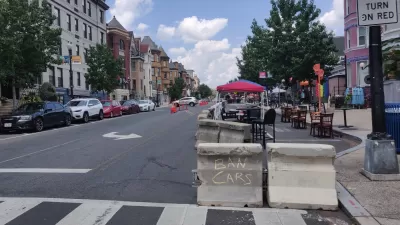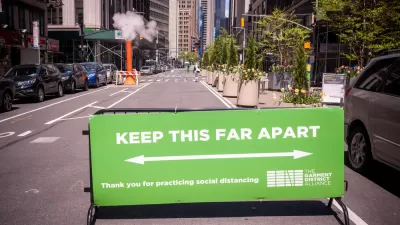Outdated frameworks for participation and cutbacks in services have soured the relationship between citizens and their governments. A new study suggests policies and legislation for reviving meaningful public engagement in governance.

"Despite the fact that governments are pumping out more and more information to citizens, trust in government has edged lower and lower, pushed in part no doubt by the lingering economic hardships and government cutbacks resulting from the recession," writes Mark Funkhouser. "Clearly the relationship between citizens and their governments needs to be reframed."
Though several techniques have been developed in recent years to help bridge this divide, a new study titled Making Public Participation Legal finds that many of them - from decision-making forums to facilitated group meetings - are not supported by the legal framework common to local U.S. governments.
"Making Public Participation Legal not only makes the case for how outdated public participation laws actually work against meaningful citizen engagement but also lays out an excellent set of policy options for strengthening public participation," notes Funkhouser. "The study includes model municipal and state public participation legislation, along with model city charter language for citizen advisory boards."
"With a little tweaking, the study says, they could be 'ideal forums for deliberative democracy practices that can better mirror the organic processes of citizen-driven collective action.'"
FULL STORY: The Failure and the Promise of Public Participation

Maui's Vacation Rental Debate Turns Ugly
Verbal attacks, misinformation campaigns and fistfights plague a high-stakes debate to convert thousands of vacation rentals into long-term housing.

Planetizen Federal Action Tracker
A weekly monitor of how Trump’s orders and actions are impacting planners and planning in America.

In Urban Planning, AI Prompting Could be the New Design Thinking
Creativity has long been key to great urban design. What if we see AI as our new creative partner?

Portland Raises Parking Fees to Pay for Street Maintenance
The city is struggling to bridge a massive budget gap at the Bureau of Transportation, which largely depleted its reserves during the Civd-19 pandemic.

Spokane Mayor Introduces Housing Reforms Package
Mayor Lisa Brown’s proposals include deferring or waiving some development fees to encourage more affordable housing development.

Houston Mayor Kills Another Bike Lane
The mayor rejected a proposed bike lane in the Montrose district in keeping with his pledge to maintain car lanes.
Urban Design for Planners 1: Software Tools
This six-course series explores essential urban design concepts using open source software and equips planners with the tools they need to participate fully in the urban design process.
Planning for Universal Design
Learn the tools for implementing Universal Design in planning regulations.
Gallatin County Department of Planning & Community Development
Heyer Gruel & Associates PA
JM Goldson LLC
City of Camden Redevelopment Agency
City of Astoria
Transportation Research & Education Center (TREC) at Portland State University
Jefferson Parish Government
Camden Redevelopment Agency
City of Claremont





























